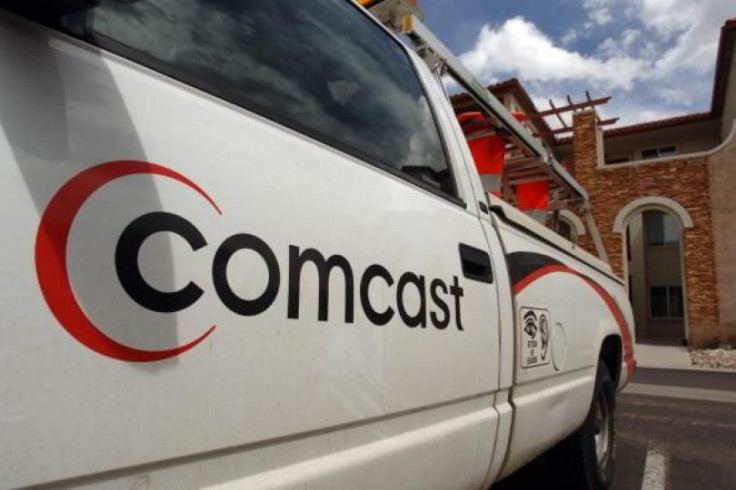New Comcast Data Caps Coming Soon, And You Might Be Paying More For Your Internet

Comcast customers have a change headed their way: the company will be introducing data plans that work much like the ones from cellphone providers. The broadband service limits will be rolled out to “many markets” around the country where customers who exceed 1 TB of data will receive a warning and, after two “courtesy months,” will be billed for over charges.
Those who exceed one terabyte will be charged $10 for every extra 50GB per month with a $200 overage charge limit. Or, users can upgrade to the unlimited data plan which is an additional $50 a month without overcharges.
To see if impacted, customers can do one of two things: visit Comcast’s updated FAQ for a full list of states and metro areas that will be subjected to the data cap or go to the company’s “data plan” site to search by zip code. Customers will also receive an email from the company if they are in any of the affected markets.
Consumerist reports that there are two variations of the email being sent out to customers and which one a person receives is determined by their data usage. For instance, a consumer that uses less data will get a reaffirming email that outlines how much data they use and how the new change will likely not affect them. Those with higher data intake receive a more defensive email that says most of Comcast’s customers consider one terabyte to be a lot of data.
According to Comcast, the cap is in place to make things fair for people who use less data than others.
“A terabyte is a massive amount of data. More than 99 percent of our customers do not use 1 TB of data in a given month,” said Comcast in a blog post. “But for those who do use more, we have options. Our data plans are based on a principle of fairness. Those who use more Internet data, pay more. And those who use less Internet data, pay less.”
That said, it appears the new cap is a way to charge those who use more data to pay more. If 99 percent of customers do not exceed the cap, then charging overages serves no purpose aside from getting that one percent to pay more. Especially considering that the 99 percent will not pay less based on their monthly usage. In theory, if fairness is the primary goal, then shouldn’t a customer who uses a fourth of their data plan only pay a fourth of the plan’s cost?
Another point of contention is how data usage is measured, as the power lies solely in the hands of Comcast and their meters are not foolproof. Just last month, ArsTechnica reported on the company’s self-proclaimed “perfect” meters that left a couple with enormous bills. Last year, the publication reported a similar tale of questionable data usage.
In September, Comcast CEO Brian Roberts revealed at an investor conference that the cable company will debut a cellular network mid-2017. While Roberts did not divulge anything regarding price points or plans, he did shed light on their targeted demographic: Comcast’s existing cable consumer base.
As for the network, it will be a "hybrid cellular and Wi-Fi service" that will not need new cell towers. Part of the service will be provided by the company’s Xfinity Wi-Fi hotspots. Comcast has 15 million Wi-Fi hotspots around the country, with some 8 million public Wi-Fi hotspots and millions more from the company’s Internet subscribers—over the past few years, the company gradually replaced traditional routers in many customers’ households with dual-mode routers and turned homes into hotspots.
Should a device not be within reach of a Xfinity Wi-Fi hotspot, Comcast’s service will use Verizon's wireless network. Comcast is able to use Verizon’s network after invoking an agreement in its 2011 spectrum deal with the company. As per the $3.6 billion pact, Comcast can resell mobile service while on Verizon’s network.
"Clearly our goal is to take market share,” said Roberts, reports CNET, at the Goldman Sachs Communacopia conference in New York. “The [Comcast Wireless] team is getting ready to launch by the middle of next year.”
© Copyright IBTimes 2024. All rights reserved.






















